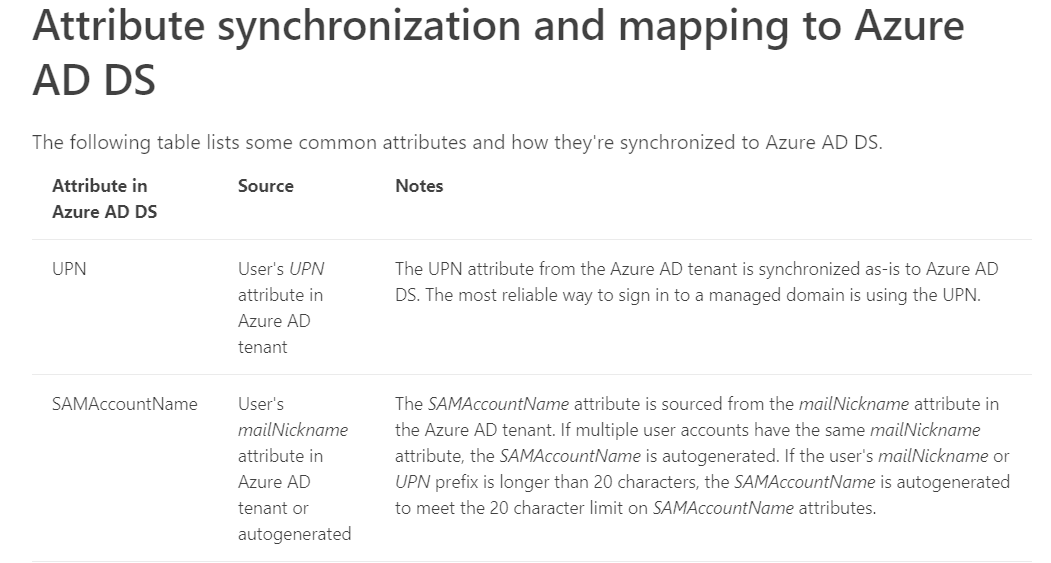Hello @TokoWieme,
Azure AD and Azure AD Domain Services in particular is a little bit special. There are two things to consider. First off, in the case of Azure AD being used for OpenId Connect you will run into issues if the DirectoryId is not set to UserPrincipalName. This is because the tokens issued by Azure AD will always contain the UserPrincipalName.
Second is about the default value of the Identity field being mapped to SAMAccountName. Here you have a bit more options.
The SAMAccountName attribute is constructed from other attributes in such a way to make sure it is unique (Please refer below url for more information).
https://docs.microsoft.com/en-us/azure/active-directory-domain-services/synchronization#how-specific-attributes-are-synchronized-to-your-managed-domain
The reason, it is used for the Identity field in IFS by default. It is also because, it is likely to produce well-formed Oracle Database usernames, which is done during creation. Acting as primary key for the user table and the name of the associated Oracle account is the main purpose of the identity field.
Kindly noted that, the limitations associated with the SamAccountName attribute are imposed by Microsoft and not by IFS. You can concatenate several attributes into a string if you like by using "&GivenName.&Sn" concatenation.
Hope this helps to your question. Kindly noted that this is not a bug.
Cheers!





